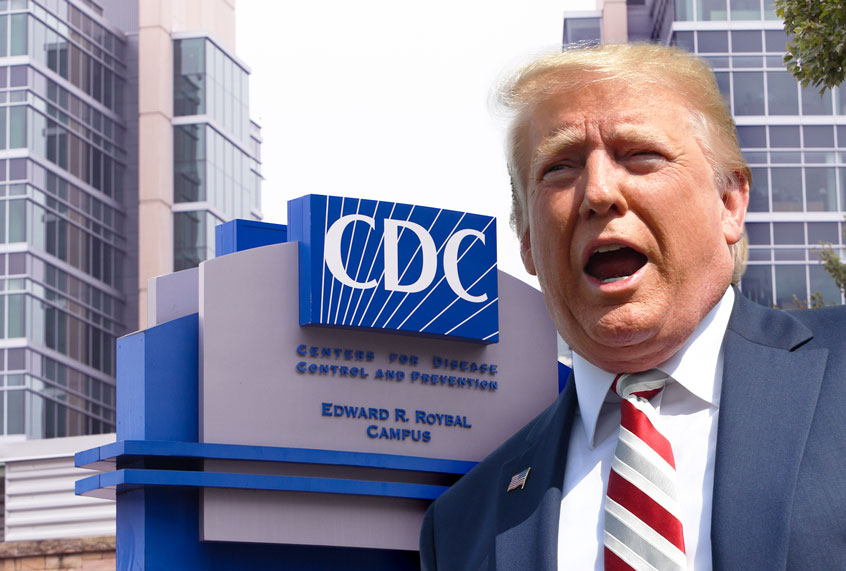President Donald Trump has issued an order for hospitals throughout the United States to bypass the Centers for Disease Control and Prevention when relaying information about patients with COVID-19. Instead, as of Wednesday, the White House wants that information sent directly to a central database controlled by one of Trump’s cabinet members.
The Department of Health and Human Services will receive all daily reports about the patients being treated by each hospital, the number of available ventilators and beds and other vital data, according to The New York Times. The database will not be available to the public, a factor that could impact public health officials’ and researchers ability to make informed policy decisions about the pandemic. In light of Trump’s declining poll numbers as the pandemic has worsened — and the fact that it has put him at a historic disadvantage when it comes to being reelected — there are concerns that this decision could allow him to release data to the public in a way that is politically flattering regardless of the truth.
“Today, the CDC still has at least a week lag in reporting hospital data,” Michael Caputo, the assistant secretary for public affairs at the Department for Health and Human Services, told the Times. “America requires it in real time. The new, faster and complete data system is what our nation needs to defeat the coronavirus, and the CDC, an operating division of HHS, will certainly participate in this streamlined all-of-government response. They will simply no longer control it.”
Salon reached out to Caputo for comment and did not hear back, though Salon spoke with other experts who weighed in.
“As best I can tell, there wasn’t any meaningful representation from governmental public health” when this decision was made, Dr. Georges Benjamin, executive director of the American Public Health Association (APHA) and former secretary of health in Maryland, told Salon. “I checked in with those folks this morning [representatives from state and local health department organizations] and [that’s when] they got informed — as far as I can tell, we’re not part of the discussion,” Benjamin added. He noted that local health officers need that information first so they can make informed decisions for themselves and other local officials, like governors and mayors.
“I’m making informed decisions about resources, about contact tracing, about bed allocations. When I was at the state of Maryland, we regulated the hospitals,” Benjamin explained. “I needed that data first. And one of the things that we did locally was we validated some of the data to make sure that it is in double counted. That it’s correct. Not necessarily that each piece of data that goes in, but we have a process of quality assurance to make sure the data is right.” He pointed out that during the pandemic “this current data goes through the hospitals into basically a CDC system. And the CDC essentially does some of that same stuff. They validate data, they look at it, they understand it. They massage it a bit to see what it means. They’re the experts. Now, in the middle of a disaster, you’re basically building a new system.”
Jen Kates, the director of global health and H.I.V. policy with the nonpartisan Kaiser Family Foundation, expressed a similar concern to the Times.
“Historically, C.D.C. has been the place where public health data has been sent, and this raises questions about not just access for researchers but access for reporters, access for the public to try to better understand what is happening with the outbreak,” Kates explained. “How will the data be protected? Will there be transparency, will there be access, and what is the role of the C.D.C. in understanding the data?”
Benjamin and Kates are not the first people to express concern over the Trump administration’s behavior toward the CDC. Prior to the announcement about hospitals needing to bypass the agency’s database, a group of former agency directors wrote in The Washington Post that “it is extraordinary for guidelines to be undermined after their release. Through last week, and into Monday, the administration continued to cast public doubt on the agency’s recommendations and role in informing and guiding the nation’s pandemic response.”
They added, “On Sunday, Education Secretary Betsy DeVos characterized the CDC guidelines as an impediment to reopening schools quickly rather than what they are: the path to doing so safely. The only valid reason to change released guidelines is new information and new science — not politics.”

